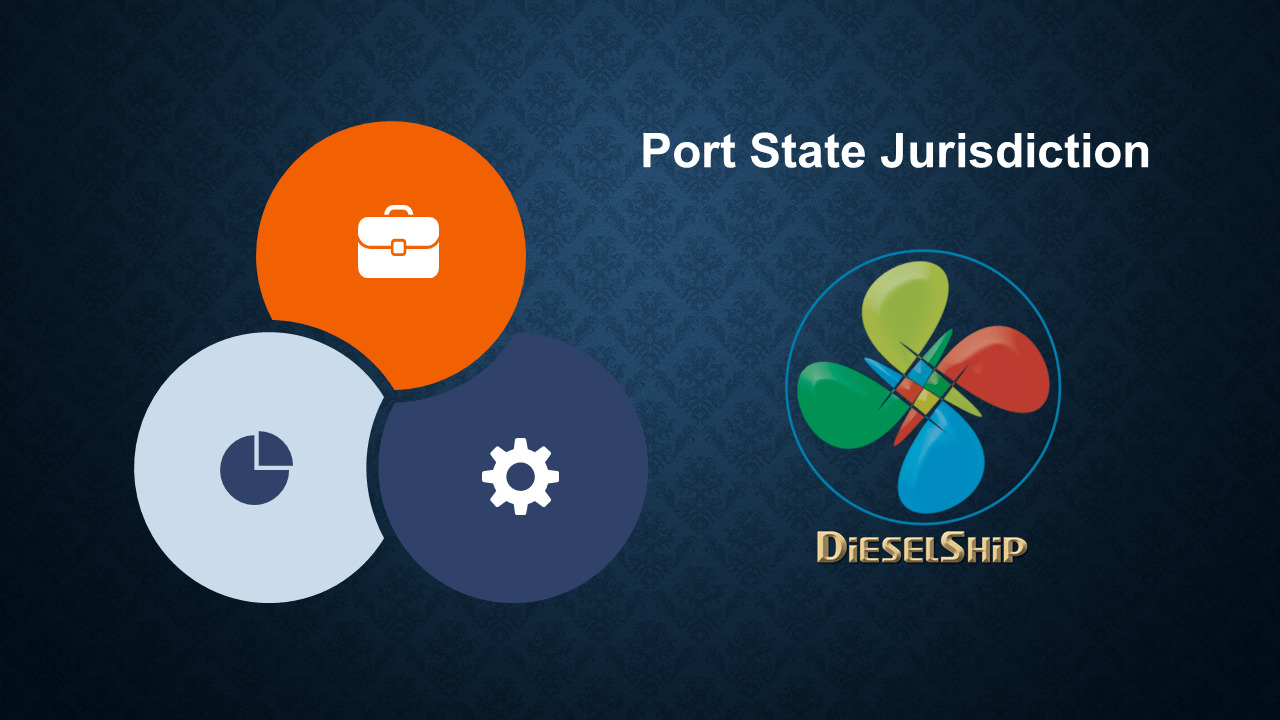Port State Jurisdiction

Port State Jurisdiction
Ships trade internationally and have to call at various ports all over the world. many ships may not call at any of their home ports for a considerable period and it is possible that during a certain period of time Ship’s Certificates may not have been renewed or maintenance in general has suffered due to various reasons. Therefore, it is imperative that ships must be inspected at various ports to ensure compliance with rule requirements as regards safety, maintenance, manning, etc. This control is termed as Port State Control.
For more information on port state control please read https://dieselship.com/management/port-state-control/
What does UNCLOS say about PSC?
Port state jurisdiction is not covered by UNCLOS directly, but UNCLOS provisions confirm this practice, indicative of residual jurisdiction in relation to port state-control.
What about jurisdiction over a foreign-flagged vessel?
A port state enjoys limited jurisdiction over a foreign-flagged vessel in its port. Foreign vessels calling at ports are subject to the coastal state’s criminal laws, civil laws, and regulations, yet the coastal state has discretion as to whether jurisdiction will be exercised in each instance. This means it is up to the coastal state to decide if, how, and when to exercise its jurisdiction (enforcement.)
Such types of jurisdictional enforcement powers are typically considered Port State Control (PSC). PSC allows port states to inspect and verify that foreign vessels are compliant with international standards for ship condition (including vessel source pollution), equipment, manning and operation on three grounds:
– Own initiative (non-compliance with domestic or regional regulations)
– At the request of the flag state or another coastal state (for infractions against their legislation)
– After a third party complaint (specifically working conditions provided by crew, a trade union, etc.)
These enforcement powers are, of course, restricted to a reasonable extent for foreign sovereign immune vessels such as warships, vessels owned and operated by a sovereign foreign state entity, and vessels which may be controlled, owned, or operated by diplomatic missions.
Voluntary entry & Forced Entry
Voluntary entry to port entitles a vessel to less freedoms (more port state jurisdiction) than if a vessel has entered port under force majeure or other conditions of distress such as severe weather, mechanical or structural integrity problems, etc. Such reasons for entering a port, without earlier intended plans, usually grant a vessel limited immunity from prosecution in matters specifically related to the coastal state’s jurisdiction (violations of coastal / port state’s civil laws, and domestic environmental regulations) as the vessel in distress could not take appropriate measures to avoid entering the waters / port and hence avoid non-compliance. In particular, they are generally considered exempt from non-malicious breaches of marine pollution laws and regulations. Under extreme circumstances and violations of international law (unacceptable pollution, suspected IUU Fishing, suspected piracy, etc) the port state may impose jurisdiction on the basis of preventative measures for the benefit of the international community (generally the same policies as if they encountered the vessel on the high seas).
However, if while the vessel is in port, and the vessel (including members of the crew) violate the laws of the coastal state they may be subject to the jurisdiction of the local authorities (i.e. committing crimes while in port, etc). This is a grey area in the law which is often debated and open to interpretation depending on specific circumstances. Generally, the vessel and crew which operate it are not given a ‘carte blanche’ to do as they please while in port and ashore in the coastal state. If the authorities are under the impression the vessel or members of the crew may currently be engaging in activities which violate the laws or regulations of the coastal state they may increase their jurisdiction, including enforcement powers, and even prosecution. Again, this is a grey area in the law, and the coastal state has discretion to enforce or not enforce certain laws and regulations.
Exception to ships that has taken part in search & rescue
Additionally, under SOLAS vessels having conducted search and rescue missions at sea are permitted to disembark persons at the nearest available port. Jurisdiction of the port state should not, under standard circumstances, apply to the vessel engaged in such operation or the subjects of the rescue.
Why some ports have more stricter law?
There is a unique gap in UNCLOS legislation which does not flatten the regulations for vessel construction, manning, and equipment across the maritime zones of a coastal state besides being in line with generally accepted international rules and standards (GAIRS). This has opened a unique loophole for coastal states to apply more stringent requirements for ships in their internal waters, and subsequently ports, than in their territorial sea. This right does come with the responsibility, however, of providing appropriate publicity of the specific requirement and advising the IMO. Along with genuine use of this inconsistency for safety and environmental management, it also allows states to use such construction, manning, and equipment regulations for governing internal water / port access as a political tool under the guise of safety and / or pollution prevention jurisdiction.
